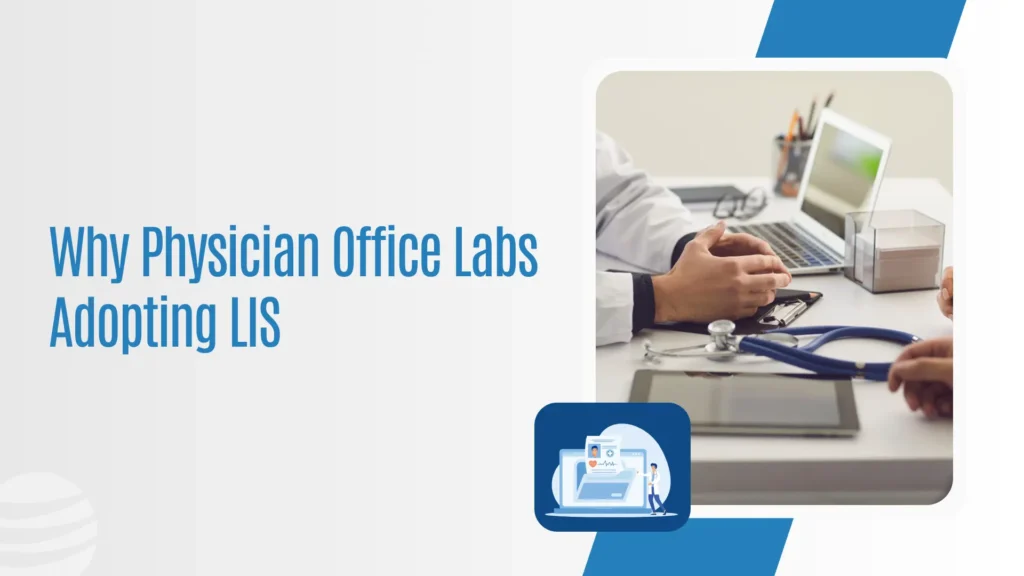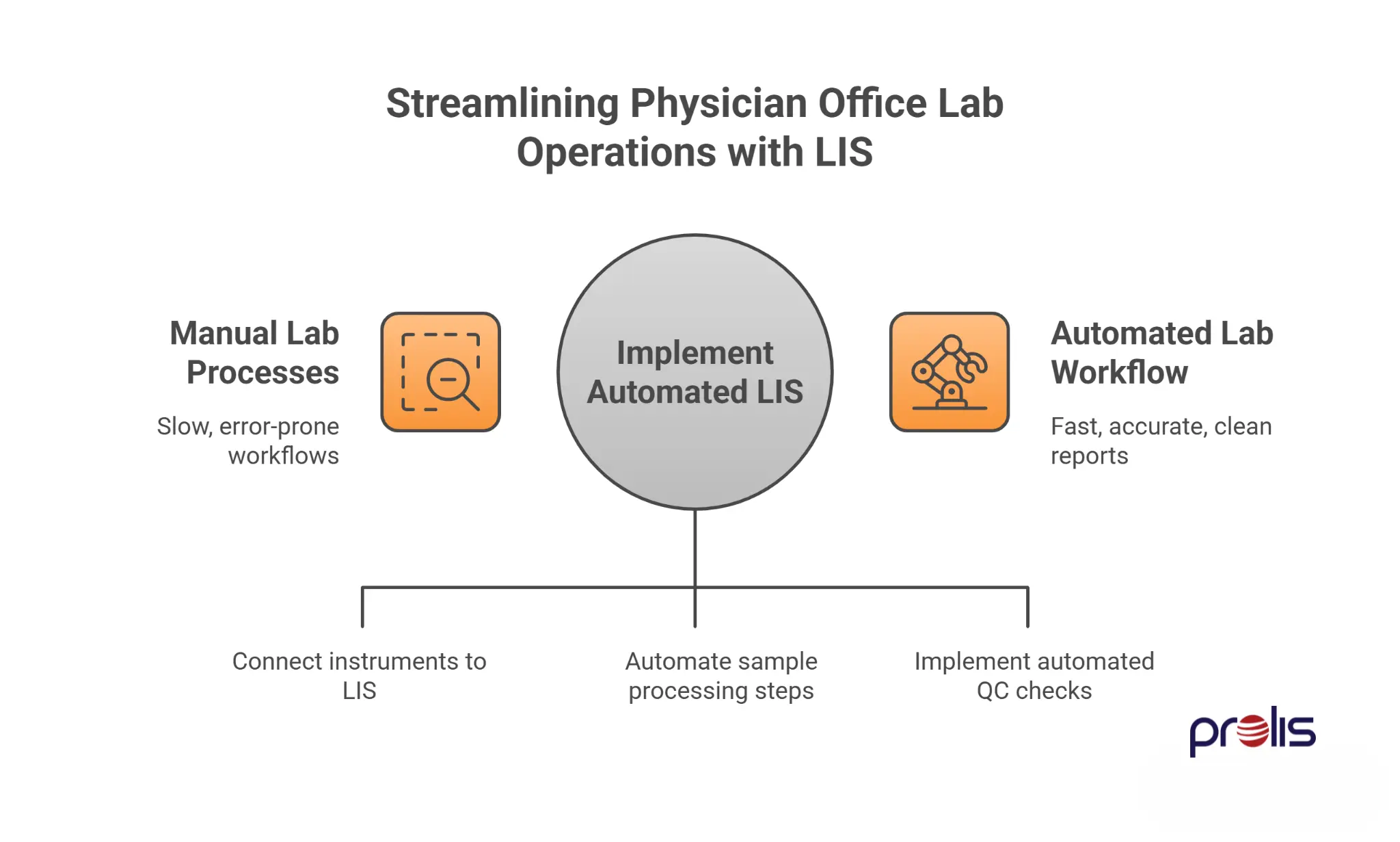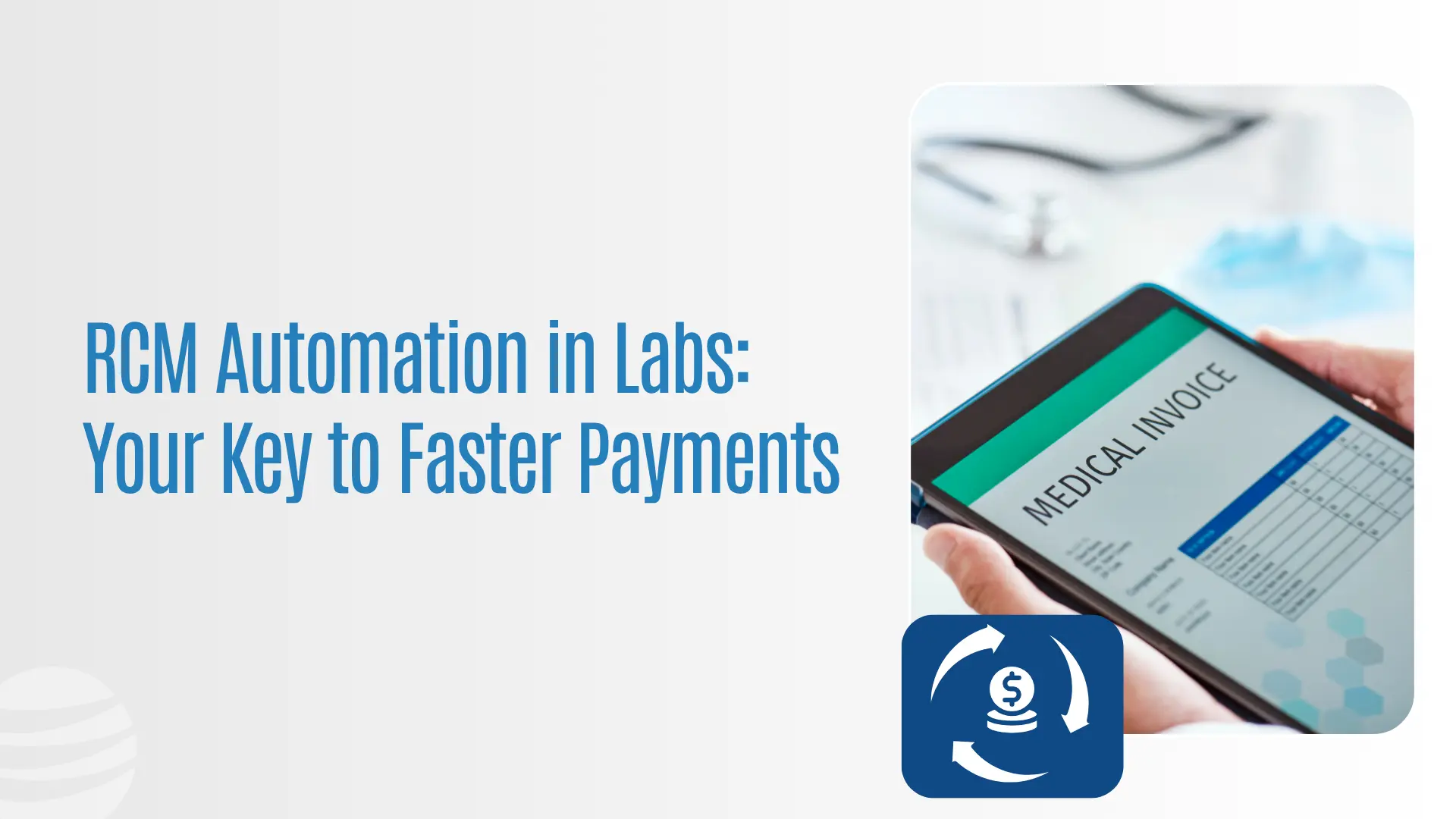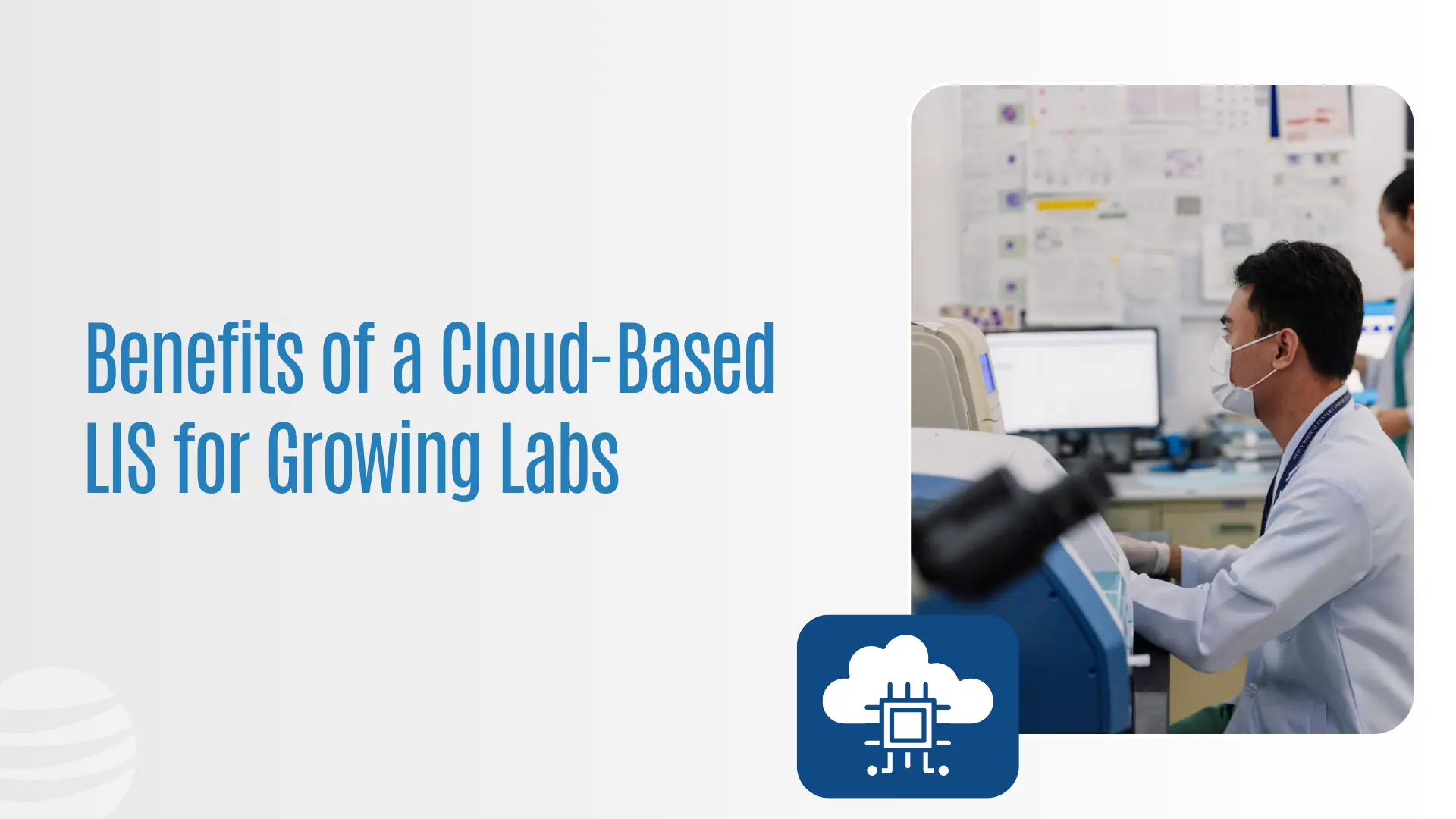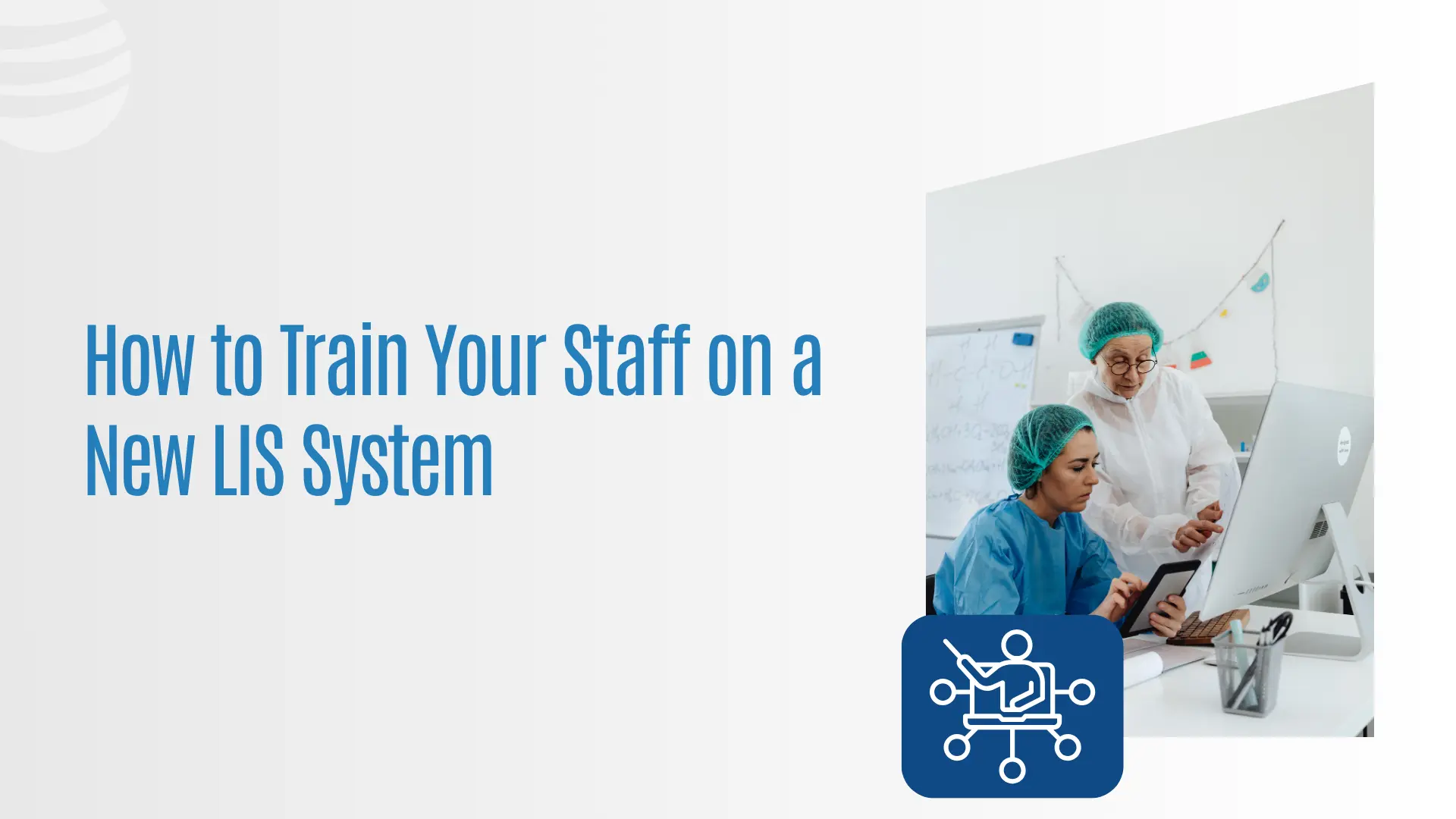Why Physician Office Labs Are Investing in LIS More Than Ever
Rise of In-House Testing
Physician Office Labs (POLs) have become a cornerstone of decentralized diagnostics. In the past, these labs were limited to waived tests and basic equipment. Today, they’re evolving performing more complex tests, adopting CLIA certification, and serving as a key revenue stream for group practices, urgent care centers, and specialty clinics.
With this shift comes new complexity. More volume. More regulations. More payer demands.
To succeed, POLs are turning to a tool once reserved for larger labs: the Laboratory Information System (LIS). And they’re doing it for one reason control.
This blog explores why more physician office labs are investing in LIS software, and how platforms like Prolis are helping them scale operations, improve quality, and capture more revenue.
The Evolution of the Physician Office Lab
Traditional POLs relied on manual workflows:
- Paper test logs
- Faxed or emailed results
- Manual billing forms
- Separate systems for instruments, patients, and payments
This may have worked for low-volume testing. But as POLs expand into:
- Toxicology
- Molecular diagnostics
- Hematology and chemistry panels
- COVID/flu panels
- Point-of-care precision testing
They face challenges once unique to full-service reference labs.
Why LIS Investment Is Growing Among POLs
1. Test Volume Has Increased
POLs are running more tests, more frequently often in batches. A LIS helps manage:
-
- Accessioning
- Workflow routing
- QC validation
- Result verification
- Turnaround time tracking
Automation reduces errors and delays, even with limited staff.
2. Payers Demand Structured Data
Insurers are cracking down on billing documentation. Clean claims depend on:
-
- Accurate CPT/ICD coding
- Test justification (medical necessity)
- Proper linkage between results and billed tests
- Audit logs
A LIS ensures these connections are traceable, which reduces denials and improves cash flow.
3. Compliance Pressure Is Real
POLs under CLIA or COLA must maintain:
-
- QC logs
- Proficiency testing
- Chain of custody for specimens
- Audit-ready documentation
Manual systems make this risky. A LIS automates compliance steps so inspections become routine, not stressful.
4. Staffing Is Limited
Most POLs don’t have large lab teams. The LIS replaces repetitive work with automation:
This allows one or two staff members to handle what previously required a full lab team.
5. Patients Expect Speed and Transparency
Today’s patients want fast results and digital access. A LIS supports:
-
- Real-time result release
- Patient portal access
- Automated notifications
- Clean PDF reports or EMR updates
This improves patient experience and physician confidence.
What a LIS Brings to a Physician Office Lab
Here’s what physician office labs get when they implement Prolis or a similar LIS:
| Capability | Impact |
|---|---|
| ✅ Workflow automation | Faster processing, fewer errors |
| ✅ QC and compliance tools | Audit readiness, regulator trust |
| ✅ Billing integration | Higher collections, cleaner claims |
| ✅ Instrument interfacing | No more manual result entry |
| ✅ Patient + provider portals | Digital access, fewer phone calls |
| ✅ Scalable configuration | Grow test menu without changing systems |
Real Outcomes from POLs Using LIS
Across multiple Prolis physician office lab clients, we’ve seen measurable gains:
- 🚀 40% faster result turnaround
- 📉 25% reduction in billing denials
- 🧾 100% inspection readiness for CLIA/COLA audits
- 👥 2x staff productivity through workflow automation
- 💵 Increased profitability per test due to fewer errors + cleaner claims
The best part? These gains came without hiring additional staff or changing core testing equipment.
Why Prolis Is Ideal for Physician Office Labs
Prolis is built for labs that want:
- ✅ All-in-one functionality
- ✅ Quick onboarding and configuration
- ✅ No complex infrastructure
- ✅ User-friendly interface
- ✅ Seamless EMR, analyzer, and billing integration
We support labs across specialties: primary care, pain management, OBGYN, infectious disease, and internal medicine all with tailored LIS setups that match clinical workflow.
Final Thought: LIS Isn’t a Luxury. It’s Leverage.
LIS software used to be thought of as “too big” for small labs. Not anymore.
Today’s LIS platforms are scalable, affordable, and fast to implement especially for labs using systems like Prolis. For a physician office lab, investing in LIS is about more than technology. It’s about:
- Getting paid faster
- Reducing manual work
- Avoiding audit failures
- Delivering better patient care
In 2025, POLs that don’t modernize their workflows risk falling behind. Those that do will scale faster, earn more, and spend less doing it.

